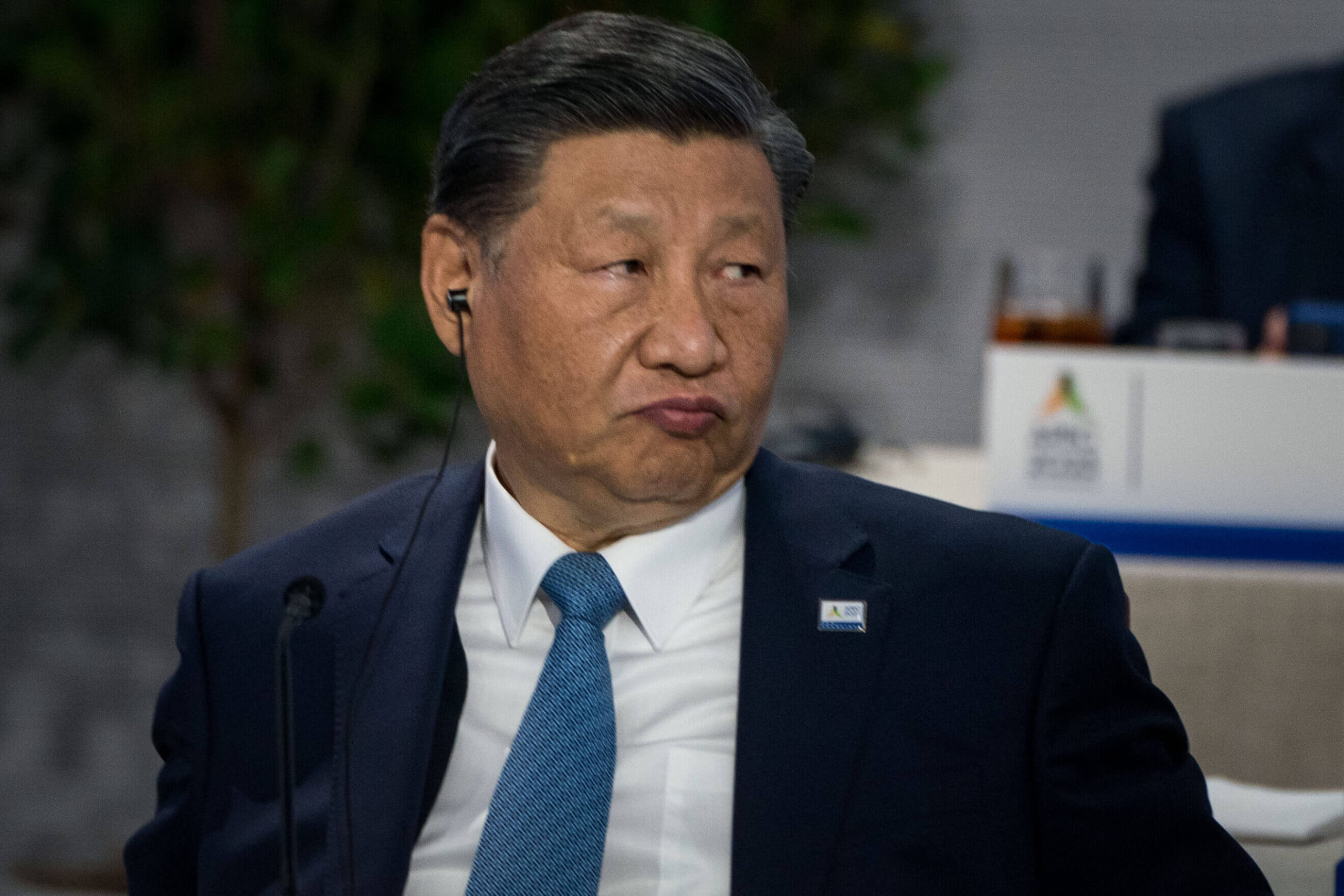By now, it should be clear that the standoff between the United States and China isn’t just about economics. To call it a “trade war” is to undersell what’s fast becoming one of the most consequential geopolitical showdowns in modern history. And if Gordon Chang is right, this isn’t just competition. It’s a struggle for survival—and one we can’t afford to lose.
Chang, a longtime China analyst and author of The Coming Collapse of China, is neither hysterical nor alone in his alarm. What sets him apart is his blunt clarity: we are locked in an existential conflict with the Chinese Communist Party (CCP), and the stakes are as high as they get.
At the center of the current fight are tariffs—massive, unprecedented ones. The headline-grabbing 245% rate on Chinese electric vehicles may sound extreme, but Chang waves that off with a shrug. These vehicles, he argues, aren’t getting into the U.S. either way. Not because of the price tag, but because of national security: embedded tech in these cars could, he warns, act as a surveillance Trojan horse.
The broader strategy, though, is far more ambitious than a few import taxes. Chang paints a picture of Donald Trump—back in the spotlight as a second-term contender—reimagining the entire global trade structure. The plan is straightforward in theory, seismic in effect: redirect global supply chains, reduce America’s dependency on adversarial economies, and remind the world that access to U.S. consumers is a privilege, not a right.
For decades, U.S. policy toward China has been guided by a strange mix of optimism and naiveté. The belief was simple: if we open our markets, China will play by the rules and liberalize in return. That didn’t happen. Instead, as Chang recounts, American factories moved overseas, entire towns were hollowed out, and the United States became a buyer of last resort for Chinese goods—while Beijing flouted trade promises and grew stronger.
To Chang, the path forward now requires resolve, not diplomacy. His outlook is stark: China only wins this economic war if the U.S. blinks first. And for him, the idea that the average American will bear the brunt of these tariffs just doesn’t hold up. Pointing to the 2018 trade measures, he notes that China ended up absorbing the vast majority of the costs—not U.S. consumers. More importantly, he argues, even if there is a cost to bear, it’s one we must accept. Otherwise, we risk becoming, in his words, a “vassal state”—a country stripped of its industrial core and beholden to a foreign adversary.
If all this sounds dramatic, Chang doesn’t apologize. What’s troubling isn’t the rhetoric, but how much of it is already visible. U.S. industry is fractured. Fentanyl overdoses are hollowing out towns where jobs once sustained dignity. And across parts of the country, hopelessness has replaced opportunity. This, he suggests, is not an accident. It’s the outcome of decades of self-sabotage, aided by Wall Street’s insatiable hunger for short-term gains and Washington’s failure to stand up to China.
But the real threat, in Chang’s eyes, runs deeper than trade deficits or missing factories. It’s the infiltration—economic, technological, even biological. He rattles off an unsettling list: drone surveillance near military bases, Chinese labs uncovered in California with dangerous pathogens, the quiet spread of espionage networks. For him, the danger isn’t looming—it’s already here.
That sense of urgency extends to China’s internal turmoil as well. Chang believes Xi Jinping’s grip on power is weaker than it appears. Purges in the military, vanishing generals, propaganda campaigns calling for “collective leadership”—all signs, he says, of deep fractures within the regime. Ironically, that makes things more dangerous, not less. A cornered regime, especially one facing demographic collapse and economic stagnation, may be more likely to lash out.
Which brings us to what Chang views as the worst-case scenario: war. Not just in Taiwan or the South China Sea, but on American soil. He envisions a future where U.S. citizens are forced to survive without outside assistance, where water and food supplies are disrupted, and where attacks—cyber or physical—are a reality rather than a remote threat. To most, this sounds apocalyptic. To Chang, it’s simply preparation for a world that’s already shifting under our feet.
His frustration with Europe is palpable. While the U.S. begins to confront the threat, many European leaders still treat China as just another trading partner. Chang doesn’t hide his contempt. He sees them as too comfortable, too dependent, and too slow to react—much like the world in the run-up to the world wars of the last century.
In the end, this isn’t really about Trump or Biden or any single administration. It’s about whether the United States is willing to wake up. Chang, like Reagan before him, sees this as a fundamental contest between freedom and authoritarianism. Between a flawed but free society, and a ruthless regime with global ambitions.
“This is an existential struggle,” he warns. “And we better win it.”
You may not agree with every one of Chang’s assertions. But in a world that feels increasingly unstable, his voice has the unmistakable ring of urgency—and a challenge we’d be foolish to ignore.
